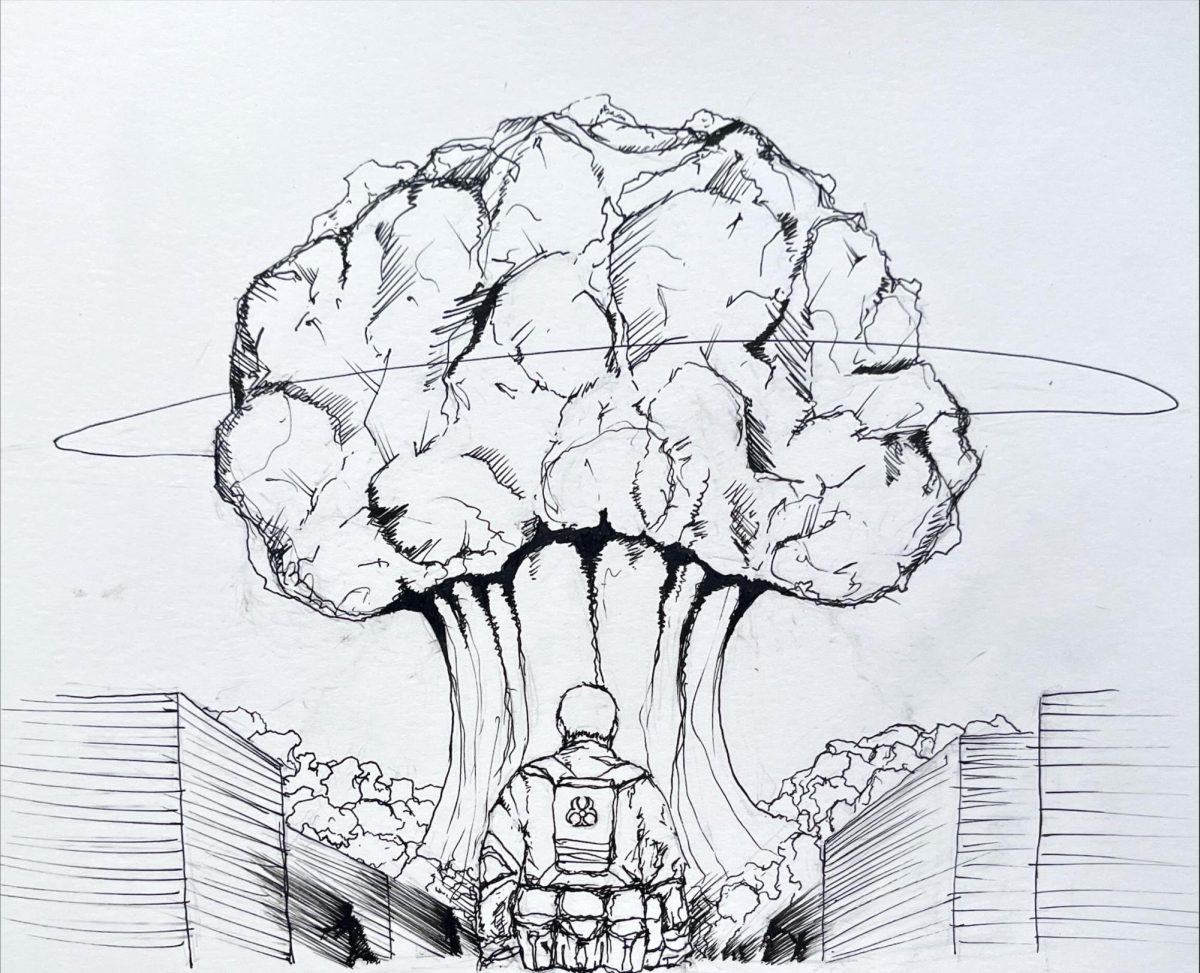Environmental awareness has increased within the last decade. Most people have noticed this, whether they are a media ace or just someone who flips on the evening news every few days. However, not enough awareness is brought to a devastating planet destroyer called war.
It’s fair to say taking the stand against climate change has become “in” and something associated with Generation Z activism and liberalism, especially through the popularity of young activists like Greta Thunberg and phrases like “save the turtles” on TikTok. On a basic level, people are accepting the value of environmentalism and understanding the importance of sustainability in different aspects of life.
Support for environmentalism is spreading through the rise of plant-based foods and vegetarian or vegan lifestyles.
The U.S. Department of Agriculture approximated 6% of Americans prefer a vegetarian diet, while another 3% identify as vegan.
On a bigger scale, social pressure to make less of an environmental footprint has been placed on companies.
Unfortunately, the complex topic of sustainability is often used as a buzzword by brands as a greenwashing marketing strategy.
Often this leads to excessive consumerism, like buying electric cars or $250 recycled shoes in the hopes of making a positive impact on the planet.
Individual choices like eating Beyond Meat and using eco-friendly products may reduce individual carbon footprints and waste. However, all these products and apparent solutions to the climate crisis are not an effective fix to what we are dealing with. It is also ineffective to rely purely on everyday people’s choices to “save the planet.”
Sufficient solutions are brought through awareness, collective action, policy changes and corporate accountability, along with individual efforts.
People have yet to give a fair share of awareness to a big contributor to climate change and pollution. This culprit is war.
Beyond being torturous and devastating to human lives, cultures and future generations, the wars in Ukraine, Palestine, Sudan and other locations are causing an abysmal amount of destruction to the planet that we all share.
Much of severe air pollution and greenhouse gas emissions come from the intense wars that are currently happening.
“The total amount of emissions after 18 months of war is estimated to be 150 million tons of CO2 (carbon dioxide), which is more than the annual emission of a highly developed country like Belgium,” said Viktoria Kireyeva, Ukraine’s deputy minister of environmental protection and natural resources, at the COP28 climate conference.
Comparably, Israel’s bombardment of Palestine has produced 281,000 tons of CO2 within the first two months, according to researchers in the U.S. and UK. Additionally, with a loss of 70% of houses in Gaza, the carbon emissions and fossil fuel energy required to rebuild societies in war-stricken countries will be monumental.
An estimated 48.7 million tons of CO2 would be needed to rebuild Ukraine to its previous standing, according to EU4Climate.
Mary Cozad is a climate activist, member of the DeKalb county board and the Forest Preserve Committee, and a retired NIU Spanish professor. She believes the effects of war ruin the environment before any attacks take place.
“The manufacturing to produce weapons are polluting the environment,” Cozad said. “A lot of them use coal and gas and materials that are bad for the environment; even before a shell hits anything the power used to produce it has already made an impact.”
Cozad suggests that manufacturers be required to switch to eco-friendly energy.
“Hardly anyone is in favor of war; we could put group pressure on manufacturers to use solar power or wind power instead of gas for manufacturing,” Cozad said.
Pollution from chemical weapons and other war technologies persists in the environment, causing long-term toxicity in once-fertile soils, according to a study published in ScienceDirect.
“Power plants, nuclear plants have been destroyed by shells; it has contaminated the whole environment for miles around, not to mention the fire and carbon that goes into the air,” Cozad said.
This contamination evidently will harm citizens and their livelihood. This is especially scary for Ukrainians, who are the ninth biggest grain producers in the world, and who have lost significant amounts of land to farm on.
Different ecological issues are horrible collaterals of wars, as people who are interested in climate activism understand.
Kay Harned, a former NIU researcher and a member of 350 Kishwaukee, believes people are scared to face the reality of their situations.
“Generally we are so protected from anything that goes on at the war, so it’s hard to get a groundswell (public support), but there are so many groups here affected by war,” Harned said.
Harned believes people in the U.S. are hesitant to put themselves in other’s shoes in order to address and connect foreign issues to the ones that people experience day to day.
“Personality politics everyone is turning their head,” Harned said. “In my mind people are afraid of what’s going to happen, so they prefer to not address it, and war is even worse than the focus of climate, so it’s easier to not address it because we don’t have to deal with it.”
The focus of environmental activism should shift from consumerism to collaborative policy change, holding politicians to their promises and views, and putting an end to climate change by resolving the destruction that comes to us.
We must recognize wars as huge polluters that will affect people in and outside of the country of conflict for generations.
We must prioritize raising awareness and advocating for solutions, rather than putting pressure on consumers to give into greenwashing. Recycling and personal footprints are important to consider and practice, but this is merely a drop in the ocean when intense wars are happening at the same time.
By addressing the environmental impacts of war alongside other climate-related problems, we can work towards a more sustainable and equitable future for everyone.






















